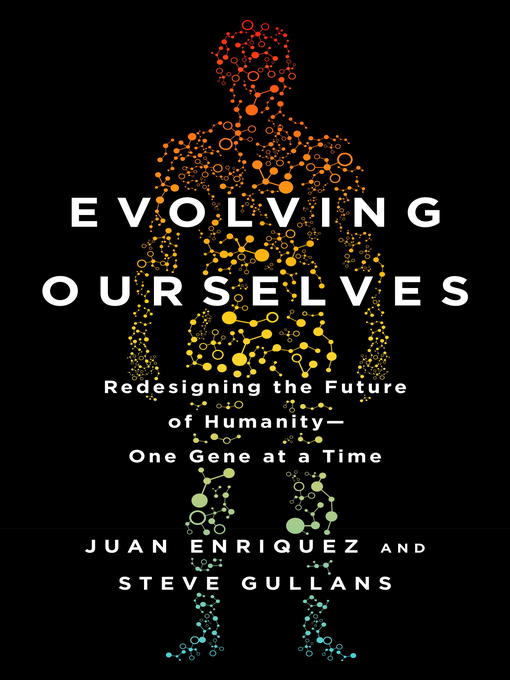Why are rates of conditions like autism, asthma, obesity, and allergies exploding at an unprecedented pace? Why are humans living longer, getting smarter, and having far fewer kids? How might your lifestyle affect your unborn children and grandchildren? How will gene-editing technologies like CRISPR steer the course of human evolution? If Darwin were alive today, how would he explain this new world? Could our progeny eventually become a different species—or several?
In Evolving Ourselves, futurist Juan Enriquez and scientist Steve Gullans conduct a sweeping tour of how humans are changing the course of evolution—sometimes intentionally, sometimes not. For example:
• Globally, rates of obesity in humans nearly doubled between 1980 and 2014. What’s more, there’s evidence that other species, from pasture-fed horses to lab animals to house cats, are also getting fatter.
• As reported by U.S. government agencies, the rate of autism rose by 131 percent from 2001 to 2010, an increase that cannot be attributed simply to increases in diagnosis rates.
• Three hundred years ago, almost no one with a serious nut allergy lived long enough to reproduce. Today, despite an environment in which food allergies have increased by 50 percent in just over a decade, 17 million Americans who suffer from food allergies survive, thrive, and pass their genes and behaviors on to the next generation.
• In the pre-Twinkie era, early humans had quite healthy mouths. As we began cooking, bathing, and using antibiotics, the bacteria in our bodies changed dramatically and became far less diverse. Today the consequences are evident not only in our teeth but throughout our bodies and minds.
Though these harbingers of change are deeply unsettling, the authors argue that we are also in an epoch of tremendous opportunity. New advances in biotechnology help us mitigate the cruel forces of natural selection, from saving prematurely born babies to gene therapies for sickle cell anemia and other conditions. As technology like CRISPR enables us to take control of our genes, we will be able to alter our own species and many others—a good thing, given that our eventual survival will require space travel and colonization, enabled by a fundamental redesign of our bodies.
Future humans could become great caretakers of the planet, as well as a more diverse, more resilient, gentler, and more intelligent species—but only if we make the right choices now.
Intelligent, provocative, and optimistic, Evolving Ourselves is the ultimate guide to the next phase of life on Earth.

